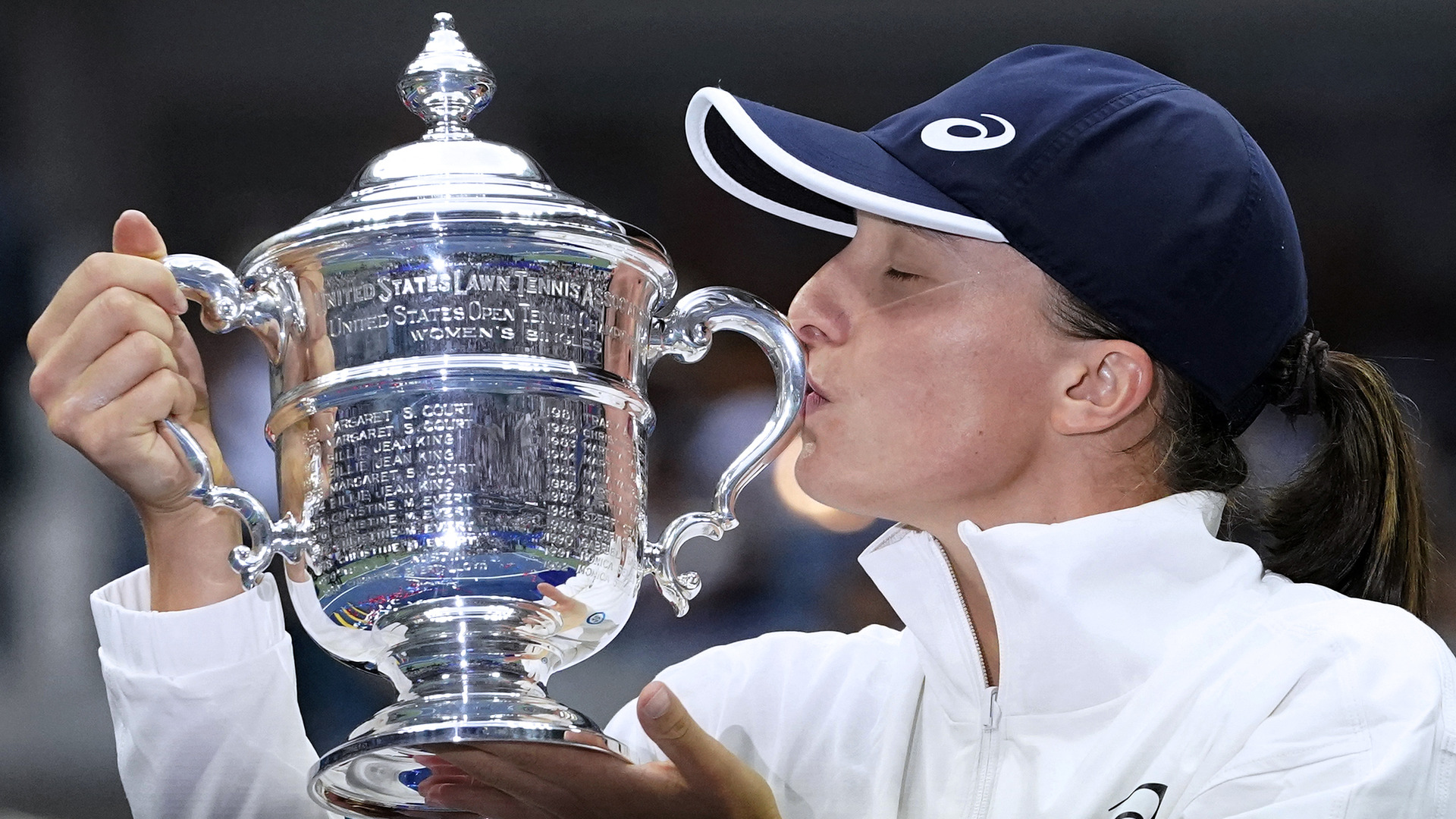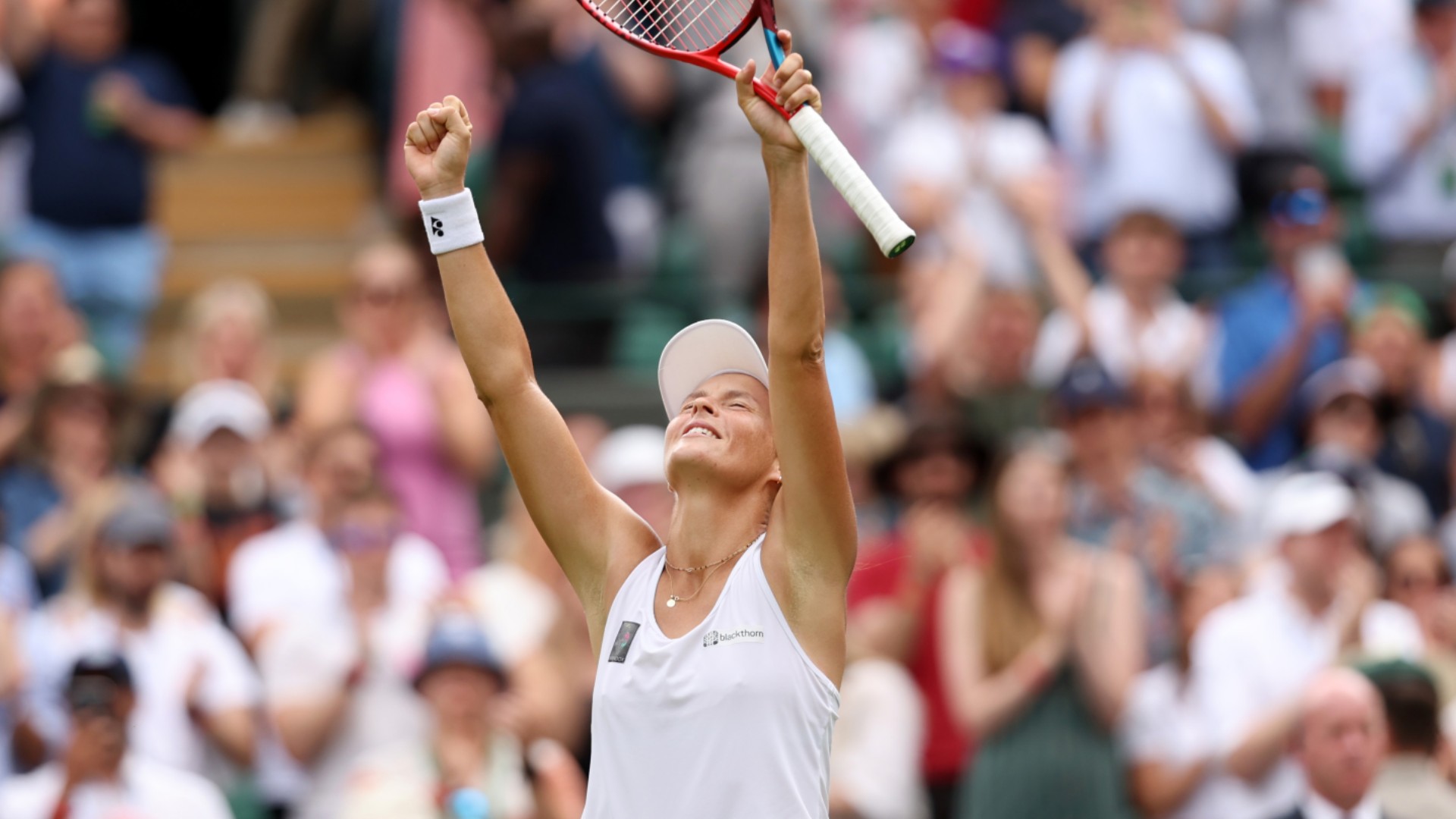
New York City might not be Iga Swiatek’s kind of place, but she has made an exception during this US Open fortnight.
The US Open balls, controversially lighter for the women than the men, might not be up Swiatek’s street, but she made an exception for them too.
And if the match-up with Ons Jabeur in the Flushing Meadows final felt almost too close to call – most were forecasting three sets, flip a coin on the winner – well, perhaps Swiatek took exception.
Rising to the occasion of a grand slam final is what exceptional players do, making exceptions in times of need, taking exception to doubters, carrying off titles. If anyone was beginning to doubt Swiatek after her mid-summer dip, this Arthur Ashe Stadium triumph banished the thought she is anything other than exceptional.
At times her play was brilliant, and when her level dropped, as it did in the second set, she was gritty. In the end, she was not as clutch as she might have liked, unable to take a match point at 6-5 on Jabeur’s serve and pushed into a tie-break, but a 6-2 7-6 (7-5) victory goes into the record books.
In the end, that’s all that counts. Habitual winners find a way, down one path or another.
The second set was a curious confection, both players losing their fluency but fighting hard for every point, tenacity overriding talent at times as the high stakes involved often brought the level down.
Swiatek appeared distracted by a call from the crowd at one stage, that New York bustle again getting in her head.
On the eve of the tournament, Swiatek said of New York: “I wouldn’t choose it as a place to live because I’m more of a person that needs a calm place with the proper environment to rest. New York is kind of always alive. That’s not for sure my place.”
So, Iga, how does New York feel now?
“It’s so loud, it’s so crazy,” she said at Saturday’s trophy presentation. “There were so many temptations in the city, so many people I’ve met who were so inspiring. It’s really mind blowing for me and I’m so proud I could handle it mentally.”
The 21-year-old has a third grand slam title and a first away from the French Open, where she was champion at the pandemic-delayed slam in October 2020 and again this year.
Swiatek is a Pole on a roll when it comes to the big occasions, having won 20 consecutive sets in finals, all tournaments considered, and remarkably she is the first woman to win two or more slams in a single season since Angelique Kerber in 2016.
These two women will be numbers one and two in the new WTA rankings, and there could be a real rivalry brewing. Or there might just be a slew of these trophies coming Swiatek’s way.
She is the first women to win the French Open and the US Open in the same year since Serena Williams in 2013.
If Williams does not play again, as we now expect, then Swiatek will be a very different type of figurehead for the women’s game, an introvert who goes about her business quietly, but purposefully.
She becomes just the ninth woman in the Open Era to earn a third singles slam before turning 22, joining an illustrious list also featuring Maria Sharapova, Justine Henin, Serena Williams, Venus Williams, Martina Hingis, Monica Seles, Steffi Graf and Chris Evert.
As Jabeur came charging back at Swiatek in the second set, recovering from 3-0 and 4-2 adrift to take it to the tie-break, thoughts turned to what a victory for the Tunisian would have meant.
A tournament that began as the Serena Williams show, a celebration of a player who alongside sister Venus opened the door for so many black players, might have ended with the triumph of an African Arab woman, one whose driving force is to see more players from her continent, and of her ethnicity, make strides in professional tennis.
Jabeur’s time will probably come, but this defeat will sting, just as losing to Elena Rybakina in the title match did at Wimbledon two months ago.
“I want to thank the crowd for cheering me on. I really tried, but Iga didn’t make it easy for me,” Jabeur said. “She deserved to win today. I don’t like her very much right now but it’s okay.”
She vowed to “get that title sometime soon”, but with Swiatek around that might be difficult.
Swiatek is the second woman since the slams opened themselves up to professionals in 1968 to win her first six sets in grand slam singles finals. For the record, Lindsay Davenport was the first.
This final came at the end of a tournament that Swiatek entered with low expectations. Defeat to Alize Cornet at Wimbledon halted her 37-match winning run, the longest on the women’s tour this century, and it was followed by a string of results that saw Swiatek go no further than the quarter-finals in her next three events.
“Maybe I’m the kind of person who is never going to trust myself,” Swiatek said, heading into the final.
She is a different model of champion, perhaps not the kind they are used to or particularly get behind in New York. There is no razzmatazz, no edge: just intense focus.
Swiatek is always doubting, but always looking for ways to improve, and now, when it comes to finals, always getting the job done.








